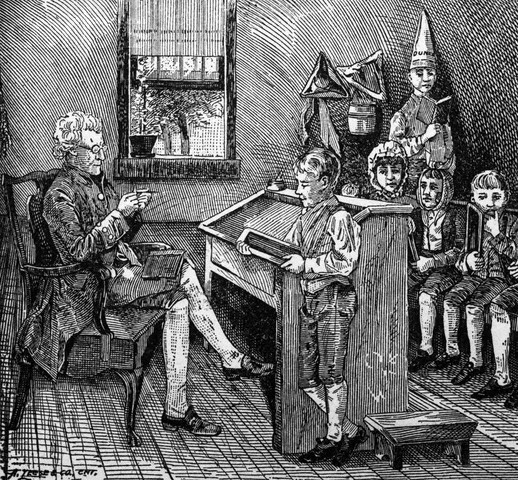In a previous post, I noted that Unitarians in early America wanted to take education away from the orthodox churches and place it in the hands of the government. Unitarianism was hardly the dominant theology of early America; the primary place where this view prevailed was in the Boston area and Harvard, so that’s where they tried to make the change first.
They decided to push for “common” schools in Boston for all elementary-age chidren. Convinced that many children were being denied a basic education, they conducted a survey in 1817. The results were not what they expected: fully 96% of all children were actually in school, and the other 4% could have attended if the parents wished, but chose to have the children work to help the family finances instead.
Now, that survey should have been the end of the push for a government-controlled hierarchy dictating how education was to be done. If they were really interested in the education of these children, they should have opted for scholarships to cover that 4% that were not in school. Yet they instead continued to demand common schools, and ultimately were successful. An educational hierarchy was set up regardless of the need. To me, this reveals the true motivation: control.
Their success in Boston was then duplicated in the state: Massachusetts later became the first state to create a state board of education. The first secretary of that board was a Unitarian. I’ll talk about him when this series on education continues in a couple days.

